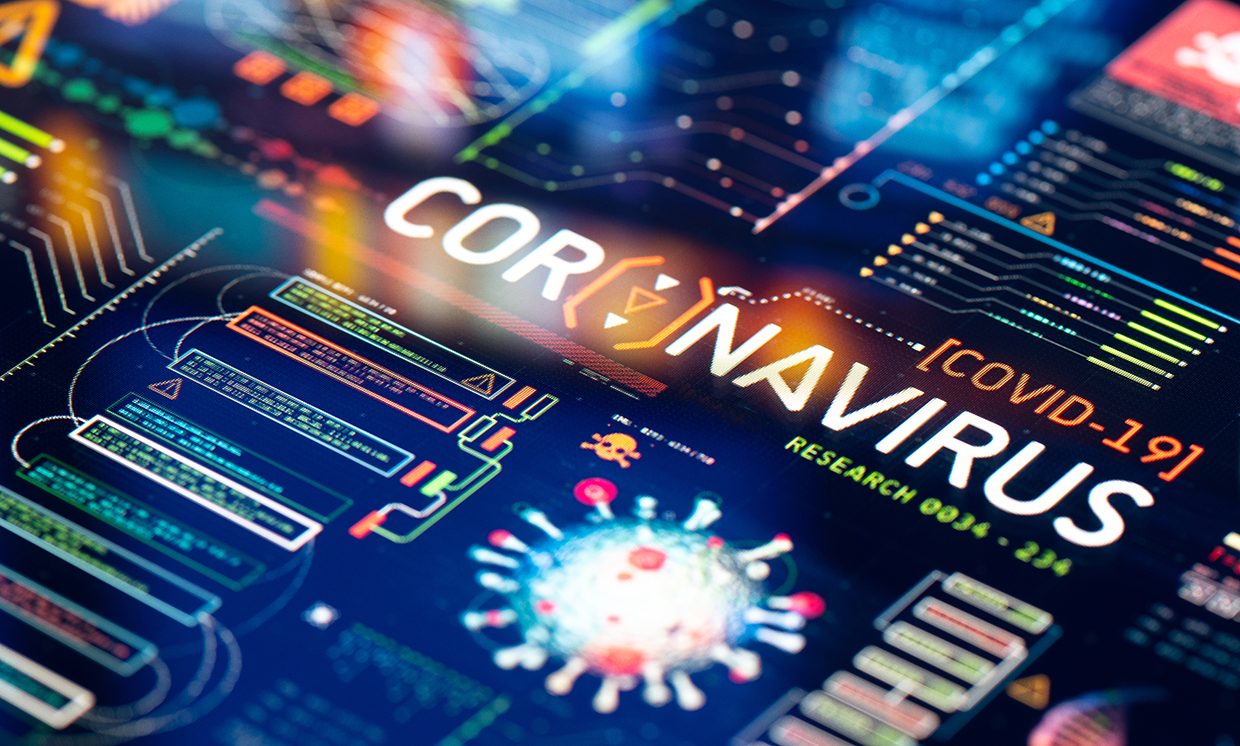In support of the ongoing fight against coronavirus pandemic, research at the global level is being largely diverted toward data science, Artificial Intelligence (AI) techniques, the Internet of Things (IoT), and Analytics to generate new insights. There is a growing urgency for these approaches as they are promising to analyze the status quo and prepare us for prevention and fight against COVID-19.
Here is a compilation of the latest information regarding these technologies for COVID-19.
Data Science applications for COVID-19
There are several interesting data sciences and big data analytics projects popping up across the globe to identify the corona outbreak. Databases inform the general public regarding the number of confirmed cases, fatalities, and recoveries.
Here is a specification of what data science can do in the fight against COVID-19.
- Python scripting is used to demonstrate the spread of the coronavirus, analysis, visualization, predictions, and comparison. With Python, one may avail of the data through email or Windows 10 notification on the corona trajectory and similar information every day.
- Data scientists and medical experts teamed up at Oxford University to create a mobile phone-based solution wherein the concerned people get text messages for self-isolation.
- COVID symptom tracker app helps the user to conduct a short daily symptom check-in. Information like age, postal code and other relevant data enable the data scientists to determine the groups or populace at risk or most affected.
- A graph database enables scientists to show links between people, places, or things. An urban data dashboard helps to understand the impact of social distancing, monitor energy consumption, air quality, and weather.
- The data sources like COVID tests, stats, patient records, hospital and travel reports, census data, and social media help the data science professionals to implement advanced analytics like geospatial time series, SNA clustering, and pathing text analysis to –
- Geofence high-risk zones
- Implement intelligent lockdown
- Quarantine select locations
- Use alerts for spreaders and normal individuals
- Conduct what-if analysis
Artificial Intelligence applications for COVID-19
Artificial Intelligence enables healthcare organizations for availing proper suggestions in real-time; screening, analyzing, predicting, and tracking of patients and likely future patients; comprehend the vaccine development, and decision-making.
A few of the applications of AI in the fight against COVID-19 are as follows:
- AI can analyze irregular symptoms and other red flags to the healthcare authorities and alarm the concerned healthcare zone and patients to take necessary steps.
- The useful algorithms help to develop a new diagnosis and management system for COVID-19 cases.
- AI diagnoses the infected cases using Magnetic resonance imaging (MRI) – and Computed Tomography (CT) scan of human body parts.
- AI helps in monitoring, treating, providing day-to-day updates, and delivering solutions to the concerned COVID-19 patients.
- AI helps to analyze contact tracing of the individuals to analyze the level of infection, identify ‘hotspots’, and predict the likely reappearance.
- AI helps to identify the most vulnerable people and regions and enable the authorities to take adequate measures.
- AI is useful for drug delivery design and development, speed up drug testing in real-time, and help for clinical trials of the developed vaccine.
- AI helps to address potential challenges and impact patient care while reducing the workload of the doctors.
- AI will become an important technology to fight against other pandemics and epidemics too by using the collected and mentoring data.
Internet of Things (IoT) applications for COVID-19
Internet of Things has enabled the healthcare system to monitor COVID-19 patients with an interconnected network. This technology increases patient satisfaction and reduces readmission rates. IoT implementation reduces healthcare costs and improves treatment outcomes.
A few of the IoT applications in the fight against COVID-19 are highlighted here.
- The hospital premises can have a complete integrated network allowing the patients and the staff to respond more quickly and effectively as needed.
- IoT network enables transparency in COVID-19 treatment as all the patients will avail of the benefits.
- The treatment methods can get automated and this helps to become productive and appropriateness of case handling.
- A well-connected teleservice helps the needy ones at the remote locations to avail of the treatment consultation and follow-ups. It strengthens the service providers to handle cases in a smart way.
- IoT helps for rapid COVID-19 screening, connect all medical devices, tools, and equipment, improve the supervision quality while conveying the information in real-time.
- It helps the doctors, government, academicians, and researchers to plan for a better working environment.
Moving forward, apart from understanding the technologies with COVID-19, let us understand how these technologies are helping business people to continue their business amid pandemic crisis.
Leveraging AI, IoT, and Data Analytics to strengthen business continuity during this pandemic
People across the world are already facing layoffs, furloughs, and pay cuts. These tools may help businesses to thrive. These tools will help the supply chain managers to gain insight into their markets, erratic supply, and demand trends. This helps them to produce supply against demand.
With a remote, home-based workforce, cloud computing can help businesses to run their core functions uninterrupted. Moreover, the increased demand for online learning, fitness, and digital consumption can help these industries gain profit to a measurable level.
In a nutshell…
To realize all these benefits at scale, there is a need for efficient professionals in large numbers. The scenario for the data science industry is booming. The professionals holding the best data science certifications have a promising demand for data-oriented occupations. This is a long-term trend that will continue even after this pandemic slows down or wanes completely as the world moves toward data.





